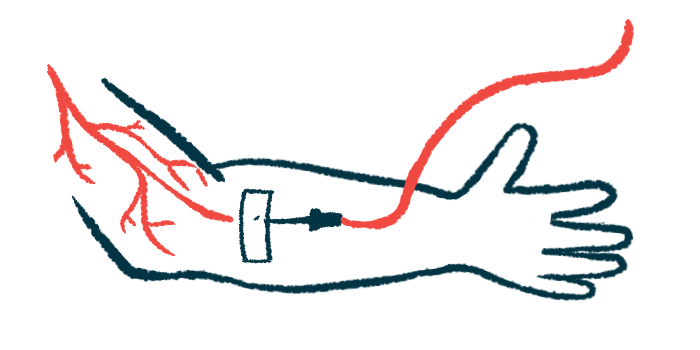Briumvi, an infusion treatment for MS, granted 3 more patents
TG Therapeutics has now extended the medicine's protection through 2042

TG Therapeutics has secured three additional U.S. patents for Briumvi (ublituximab-xiiy), an anti-CD20 antibody that’s been approved to treat relapsing forms of multiple sclerosis (MS).
Issued by the U.S. Patent and Trademark Office, the patent numbers 11,807,689; 11,814,439; and 11,884,740 specifically cover the composition and production methods for Briumvi, as well as its specific treatment approaches.
“We are pleased to announce the issuance of these additional patents for Briumvi which add to our existing patent portfolio, and extend patent protection through 2042,” Michael S. Weiss, TG Therapeutics’ chairman and CEO, said in a company press release.
Characteristics of Briumvi
Briumvi is a monoclonal antibody designed to eliminate B-cells from circulation by targeting the CD20 protein at their surface. These immune cells are key players in the autoimmune attacks that drive MS onset and progression, and reducing their numbers is a well-established approach to ease disease activity and disability progression.
Beyond relapsing forms of MS, Briumvi, taken by infusion, is also approved in the U.S. to treat clinically isolated syndrome and active secondary progressive MS since December 2022.
Briumvi’s approval was supported by data from two Phase 3 clinical trials, ULTIMATE I (NCT03277261) and ULTIMATE II (NCT03277248), showing the treatment significantly lowered relapse rates and reduced the number of inflammatory and new and enlarging lesions, compared with Aubagio (teriflunomide), an older MS oral therapy.
While other CD20 inhibitors — Ocrevus (ocrelizumab) and Kesimpta (ofatumumab) — were already on the market, Briumvi was designed to be different in a couple of ways that could potentially make it better.
In particular, the antibody used in Briumvi has been glycoengineered — meaning that certain sugar molecules normally attached to the antibody have been altered. This modification makes Briumvi more potent, allowing it to be effective at lower doses and shorter infusion times.
In fact, Briumvi is the first MS antibody-based treatment that can be administered in a one-hour-long intravenous (into-the-vein) infusion, following an initial starting dose.
The antibody’s design also changes how it activates the immune system to destroy the target B-cells. Generally, two main mechanisms are used to kill the B-cells: antibody-dependent cellular cytotoxicity (ADCC), in which other immune cells are activated to destroy the B-cell, and complement-dependent cytotoxicity (CDC), which uses a group of immunological proteins, called the complement cascade.
However, the complement system can also participate in autoimmune processes, potentially leading to side effects. Compared with other CD20 inhibitors, Briumvi is more potent at activating ADCC and less so at triggering CDC, which is expected to improve its safety profile.
“Life cycle management is of the utmost importance, and we believe these additional patents will provide a long runway to continue to explore the full potential of Briumvi, including expanding the potential reach of Briumvi in multiple sclerosis as well as in other autoimmune indications,” Weiss said.







